Do Guaranteed PR Placements Exist or Are They Scams?

PR used to have a narrower meaning than it does now, but these days, it's mostly about a branch of marketing outreach focusing on interviews, quotes, and backlinks. PR placements can be quite valuable to a brand and to a business owner; from backlinks to brand awareness to personal reputation building, they come with a lot of upside.
It's not a surprise, then, that there are many, many different companies offering PR placements as services. One of the most common forms is the HARO-like, which I have written extensively about. Others include PR contact scraping apps, outreach automation, and even more traditional PR services.
There are also services that guarantee PR placement. The question is, are any of those legit, or are they scams designed to siphon money from the unwary?
How Guaranteed PR Used to Work
I'll start by saying that guaranteed PR placements did exist years ago, but the market has changed.
A lot of them used to be sites like The Huffington Post or even Business Insider. These sites had contributor programs. A business owner could sign up for them, and you could just write relatively non-promotional content for the sites and get your name, brand, and link out there.
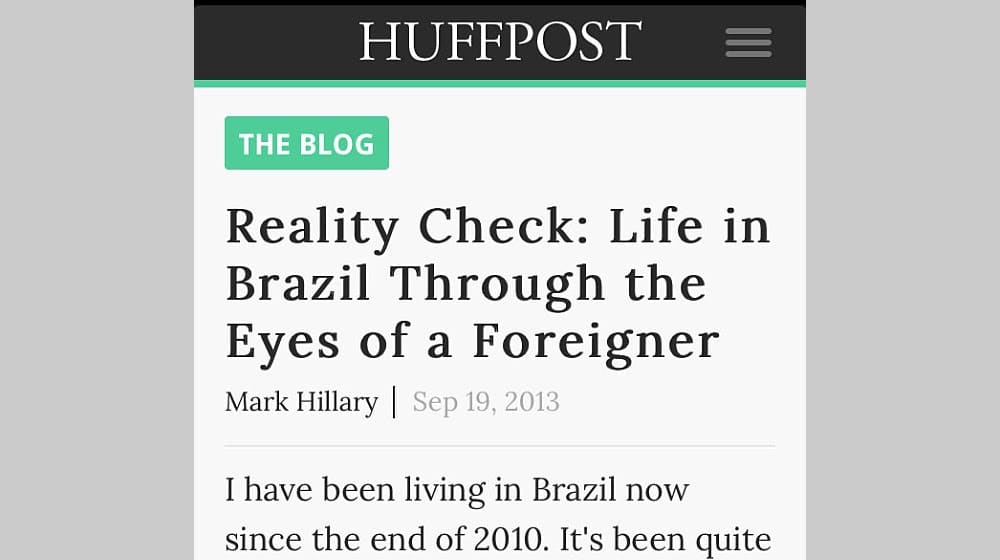
When these sites started tightening their restrictions, you needed to launder it a little. PR companies sprung up that got their own writers contributor accounts, and then brands could pay for those writers to cover the brand. Since there was a degree of abstraction between the brand and the writer, it was less overtly PR, felt more natural, and tended to linger more.
Over time, though, these publications started to encounter two facts.
- Placement on their site was considered valuable, so they were leaving value on the table by making it freely accessible.
- Google was cracking down on obvious PR and link placements and penalizing sites for it.
This led to the world we have today.
How Guaranteed PR Works Today
These days, PR placements involve a lot more work and a lot less guarantee unless you're willing to pay for it.
Sites like Business Insider will let you contribute, just like they did before, but there's a price tag to it. And we're not talking a few hundred bucks here; we're talking in the low five figures. Forbes, though they were recently hit big by the Site Reputation Abuse changes from Google, still allows paid contributors at an even higher price point.
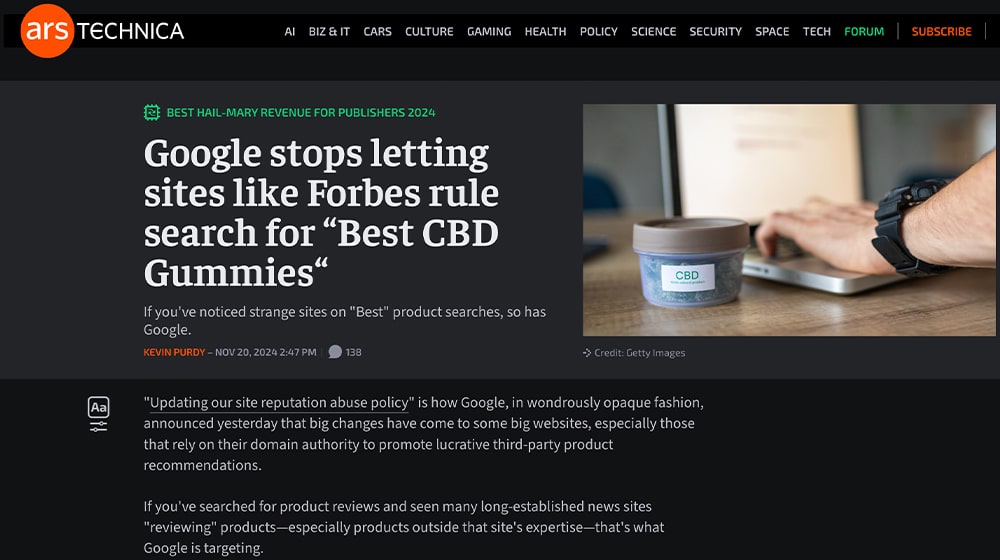
And make no mistake, there are still a lot of marketers who are willing to pay for it.
There are also even more underhanded versions of this. You used to be able to find "guaranteed link from Forbes" on sites like Fiverr, though the actual cost was much, much higher than $5. These days, that still happens, where writers and contributors in good standing essentially accept bribes to cover a topic or quote a brand in a natural way. It's risky, both to the contributor and the business, but it does happen.
Sites like Forbes are also increasingly strict on their rules for even the vaguest whiff of promotion. I wrote a piece for Forbes about SEO, and their editors interrogated me over it, asking if I had any relationship with Google (as if Google needs to launder public opinion about SEO through people like me), if I was getting paid to write it, and on and on. They're borderline paranoid about being used in a way that could get their site penalized down the line… again.
A marketer who wants a guaranteed PR placement has a few options. Paying for it directly is one, but you can also pay a PR agency that offers guaranteed placements and just does the same thing.
Don't forget, though, that there are plenty of PR firms offering "guaranteed" placements, and the sites you end up on are places like foreign news sites, PBN blogs, or sites no one has ever heard of. Sure, it's guaranteed to exist, but it's not guaranteed to be valuable to you.
What about the middle tier?
Why pay something like $15,000 for a placement on Business Insider when you could pay $1,000 each to 15 different mid-tier blogs or $500 each to 30 different blogs for placement with fewer restrictions and potentially even more promotion or even links?
That's math you'd have to do yourself. Do those 15 or 30 posts bring in the same level of value as that one placement on BI? Who knows.
Of course, a good real PR campaign can earn you dozens or hundreds of links and similar coverage, possibly even for a lower cost.
Why "Guaranteed PR" Isn't Real, and What Real PR Is
Let's draw back a bit and talk about what "Guaranteed PR" is.
The truth is that PR needs to be expanded. It's public relations. "Guaranteed" PR is just astroturfing reputation.
PR done right is earned media. It's not something you go out and buy; it's something you earn through your value, through your outreach, and through the growth of your reputation. It's also something you can lose if you violate the implicit trust that comes with the reputation you wield.

A PR campaign isn't about targeting one site and getting one article or link. It's about developing a narrative, telling a story, and building a reputation. The tangible benefits are an offshoot of the intangible benefits.
You don't want to have to pay a writer to cover you on Forbes; you want to be compelling enough, valuable enough, and have enough of a narrative backing you that those Forbes writers cover you on their own.
Signs of a PR Scam
I want to take a moment and digress to discuss PR scams. Because, unfortunately, the PR industry is full of them. Marketers are often desperate for growth, and PR scammers know how to prey on that using surprisingly sophisticated methods.
How do you discern if something is a scam, to avoid it?
The easiest option is to assume any PR you aren't doing yourself is a scam, but that's also going to keep you away from plenty of legitimate opportunities. Instead, think about these factors:
Winning awards. A common false PR scam is telling you that you can apply for an award or even just cold-emailing you to tell you that you've won one. Sounds great, right? You could be on the cover of some magazine! Never mind that you've never heard of it before.
Oh, there's just one issue: to claim your award, you'll need to pay a fee.
This one is tricky because legitimate awards programs do often have application fees. What they don't do is cold-message you and solicit those fees because you won without applying.
Research the actual publication and see if it's legit, and look into their terms and conditions, judging process, and other details. The scammers probably don't have much, if any, information available.
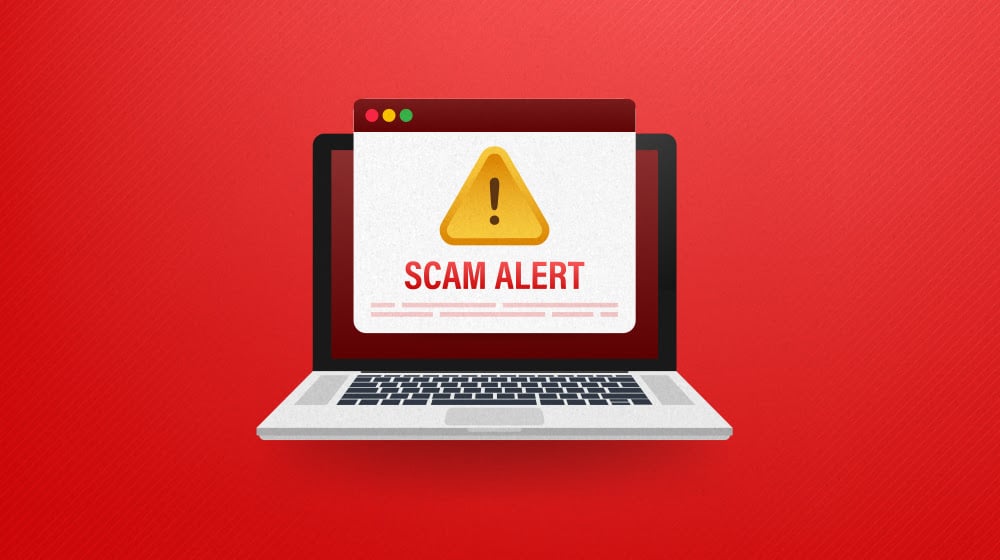
Limited information. One of the commonalities with shady or scammy PR firms is a lack of nuance and detail to what they offer. Maybe they just have a list of services (often with guaranteed results attached), or they have an ala carte system of paying for pitches or something. Maybe they just have no references or the references they have are AI-generated or otherwise faked. Always do your digging!
Undue guarantees. The hard truth is that there's no real guarantee in the world of PR unless there's something shady going on. Any PR firm that isn't one of those global-reach, costs-six-figures, works-with-Nestle kinds of firms is probably trying to pull a fast one. Either the "guarantee" isn't guaranteed, or the guaranteed placement isn't on a quality site.
Look out for bamboozling language. "Placement on Forbes* Guaranteed!" "*Forbes or another site on our list, all of which except Forbes are terrible." That, or they're just lying.
The line between a PR scam and legitimate PR can be thinner than any of us like to admit, but as long as you do your due diligence, you can spot them before you fall for them. When in doubt, just back out.
Legitimate Alternatives to "Guaranteed" PR Placement
So, if you're wary of scams or want to get down to some PR but don't want to fall into the common traps, what options do you have?
Option 1: Traditional Public Relations
Traditional PR is all about developing and spreading a narrative.
First, you come up with a pitch and a story to go with it. You want something relevant to your business, something that has enough of a story attached that it evokes emotional pathos and something that can hook readers (and, more importantly, media editors.)
Once you have this idea, you have two options. You can either implement the idea or you can shop the idea around and look for backers. Sometimes, if your idea is compelling enough, you can get other brands on board with collaborating for it, and that gives you more of a chance to land the placements you want.
Once you have something – the story to tell, or at least a good portion of it – you can then pitch it to different kinds of networks. For example, maybe you go to Gannett and see if they're interested; if they are, you get coverage on USA Today and their network of local news sites.
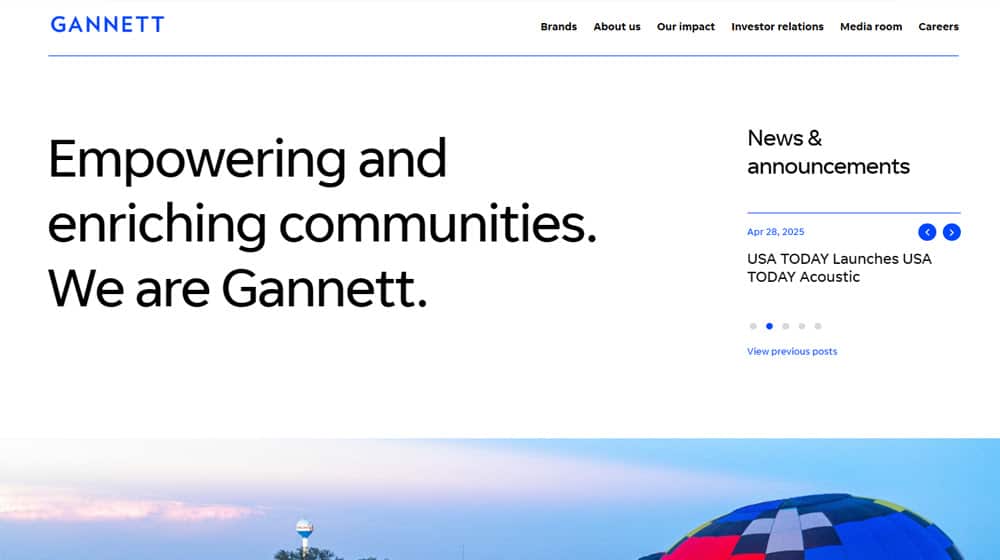
You can use exclusivity as a value-add for these networks if your story is compelling enough that they'd want claim to it.
Alternatively, you work on press releases and send them out to various media networks and editors who are likely to be interested in your narrative. Marketing via storytelling is common these days for a reason!
Option 2: Cautiously Try Paid Placements
As long as you're avoiding the scams and working with reputable PR firms, paid placements aren't necessarily scams. A lot of them are! But some of them aren't.

The biggest issue here is that, in a lot of cases, what these firms are doing isn't anything special; it's just hidden from you, so you don't know how easy or cheap it would be to do it yourself. You essentially spend extra money to save a little bit of effort.
The highest-end PR firms definitely have added value, of course. They have partners with publications and editors, and even other businesses that might cover you, and it can be a lot of value. It's just not guaranteed.
Option 3: Outreach-Based Link Earning
These days, one of the best options is to use tools and platforms to perform outreach, pitch yourself honestly, and see what you get.
It's easy to bemoan the state of modern media, but the truth is, there are still a lot of journalists and content creators out there looking for sources, and there are a surprising number of platforms that help connect potential sources (that's you) with journalists.
Of course, your chances of success with these sites are pretty slim if you don't know what you're doing. Remember that narrative I was talking about? You do still need to develop the story you're trying to tell. You need to be able to convince a journalist that you're the expert they want to talk to, and that's not always easy.
Fortunately, that's where I come in. My link-earning service is a tried-and-tested way I can help you earn backlinks from all manner of publications. Some of my clients have had coverage on sites like Forbes, HubSpot, Fortune, and even sites you wouldn't expect, like Wix and GoDaddy.
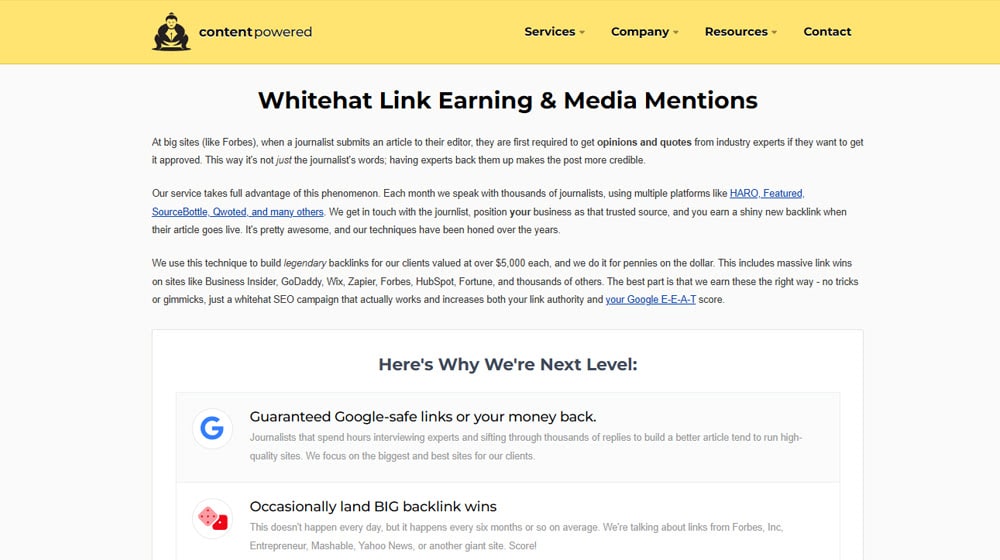
Is this something special I'm doing? No, I just have a lot of experience in using these PR outreach sites and know how to do it on behalf of my clients.
Are there guarantees? I can't tell you that you'll definitely get a link on any given publication. I can tell you that you'll get coverage to the best of my ability. What I can guarantee is that if you end up with no results or bad links somehow, I'll refund you the cost.
Want to give it a try? Just let me know, and we can get started!





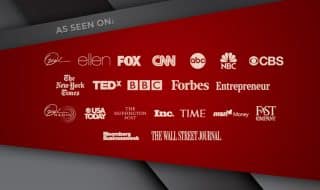




Comments